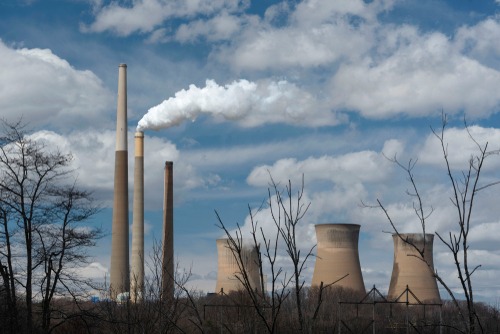
As of Wednesday evening, both Pennsylvania General Assembly chambers have voted to save state jobs by officially disapproving of the Wolf administration’s proposed regulation that would authorize the state joining the Regional Greenhouse Gas Initiative (RGGI), a multi-state compact to limit carbon emissions from power plant operators.
The Pennsylvania House of Representatives on Dec. 15 reached bipartisanship and voted 130-70 to unite with the Pennsylvania Senate and adopt Senate Concurrent Regulatory Review Resolution 1 (SCRRR-1), which aims to stop Pennsylvania’s entry into the RGGI carbon tax program.
“RGGI is a job killer. It’s nothing but an unfair tax on the fossil fuel industry that would devastate our communities,” state Rep. Pam Snyder (D-Greene/Fayette/Washington) tweeted Wednesday. “I voted against Pennsylvania’s involvement in RGGI because I’m standing up for my constituents, my neighbors, and my district.”
Pennsylvania House Majority Leader Kerry Benninghoff (R-Centre/Mifflin) also voted with the majority to support lower energy prices and save energy sector jobs in Pennsylvania by advancing the disapproval resolution, which now heads to Democratic Gov. Tom Wolf’s desk for his signature or veto.
“As a result of runaway inflation, the price to heat our homes and fill our cars with a tank of gas is going up,” state Rep. Benninghoff said in a statement. “To enter Pennsylvania into RGGI would only cause those costs to go up in this state at a time when our families are already paying more for everyday necessities.”
Joining the RGGI also would eliminate “thousands of energy sector jobs in the Commonwealth,” he added, “further limiting our economic growth potential.”
Benninghoff also pointed out that none of the states currently participating in the RGGI entered into it without the consent of their state legislature. The initiative currently includes 11 states in the Northeast and mid-Atlantic that have banded together to launch individual cap-and-trade programs aimed at cutting CO2 emissions by 30 percent.
“Supporting this measure today tells Pennsylvanians that we will continue to stand up to bad ideas from the executive branch that are being thrust upon them without real legislative deliberation,” said Benninghoff.
State Rep. Joshua Kail (R-Beaver/Washington) also voted in favor of the resolution because joining the RGGI would create a depressed economy in Pennsylvania just like what’s happening in New York and New Jersey, he said.
“RGGI will turn us from being an efficient energy producer to becoming dependent,” Kail said on Wednesday. “That flip of a switch will set us back many steps by eliminating many jobs in my area and raising energy costs to unaffordable rates. RGGI is authoritarianism and the opposite of what is in the best interest of Pennsylvania.”
Additionally, RGGI membership comes with the specter of ever higher costs for the power generation industry, consumers and businesses statewide, according to a blog published earlier this week by the Pennsylvania Manufacturers’ Association (PMA).
Fossil fuel power producers in the 11 states that make up RGGI pay a tax on carbon emissions imposed through a quarterly auction as part of a cap-and-trade program; the cost has jumped 150 percent since October 2019, when Gov. Wolf signed an executive order committing the state to the program, PMA says.
“The skyrocketing cost of membership to RGGI is yet another reason for Pennsylvania to forgo joining what is essentially a regional cartel, undermining the power generators, eliminating thousands of electricity industry jobs, all for the sake of wildly inflated environmental benefits,” according to the PMA blog. “As a regional leader in power generation, Pennsylvania will be particularly hard hit by the tax.”
A Wolf veto of SCRRR-1 would give the General Assembly until February to muster enough votes for an override, according to the PMA, which says that even without an override, a near-certain court challenge could delay implementation even further. The association notes that the key legal argument in a potential court challenge would be that the Pennsylvania Constitution gives only the General Assembly the authority to establish a new tax.
“And a new tax it is, not a ‘fee’ as RGGI enthusiasts claim, since the revenue generated would far exceed the administrative costs involved in implementing the program,” PMA says.
“There is absolutely no upside for Pennsylvania to enter RGGI,” said PMA President and CEO David Taylor, adding that “any benefit to the environment will be nearly undetectable, and thousands of Pennsylvania workers will be needlessly thrown out of family-sustaining jobs.”
Frank Sirianni, president of the Pennsylvania State Building and Construction Trades Council, which includes 92 local unions and 15 regional councils representing tens of thousands of construction workers and union retirees, also said that if the state joined the RGGI there would be “massive electric rate increases.”
In a Dec. 15 letter sent to all Pennsylvania House members urging them to support SCRRR-1, Sirianni said that the council has “repeatedly asserted” that RGGI will “dramatically increase electric rates for all electric customers,” including residential, commercial and industrial customers.
“RGGI will eliminate capital investment in both manufacturing and electric generation due to increased operational costs while stimulating investment in non-RGGI states,” wrote Sirianni. “RGGI is bad for our building trades members who build, maintain and support existing plants, which supply all power in our Commonwealth.”